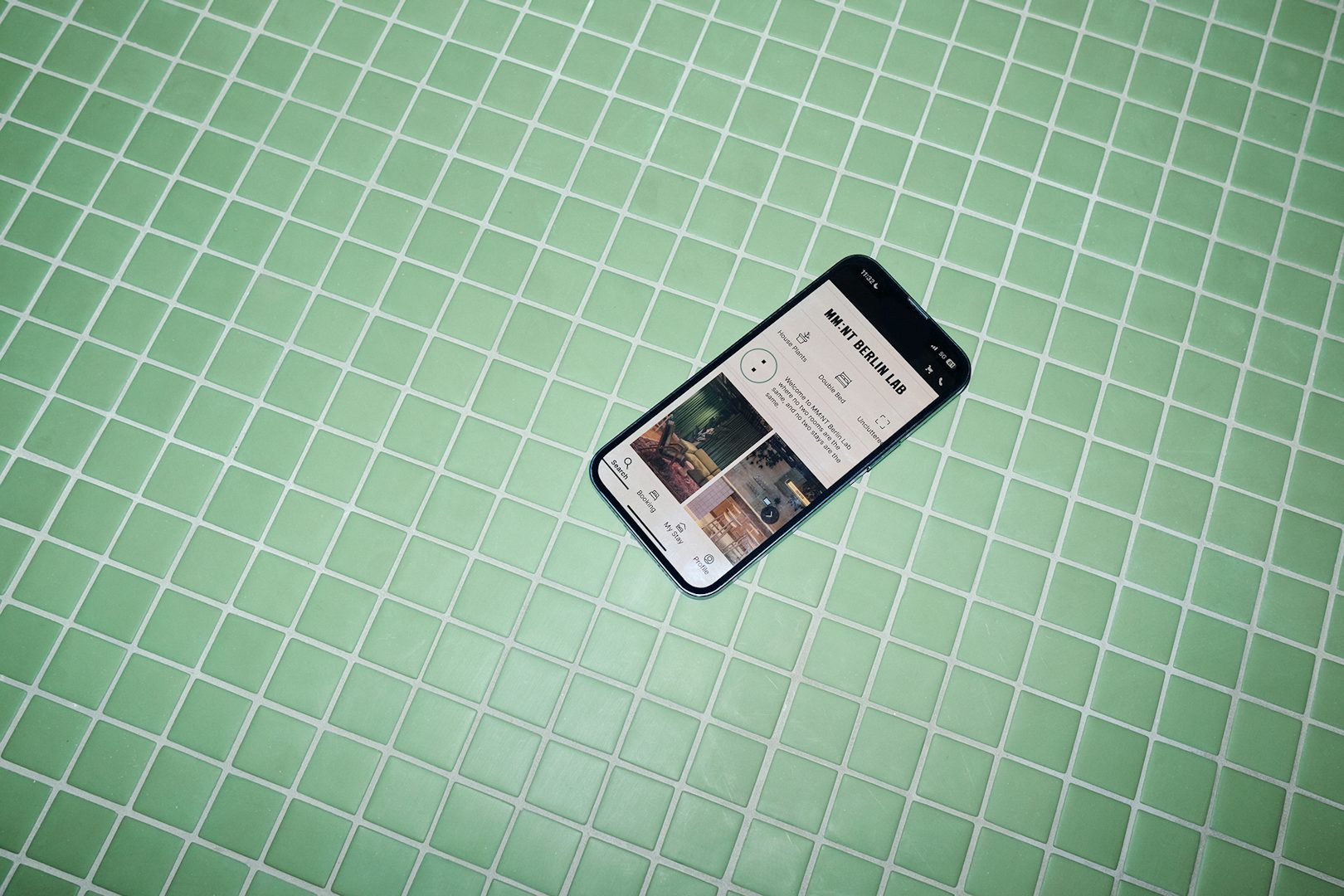Reimagining the future of travel
MM:NT Berlin Lab is a hotel brand in permanent beta mode. We speak to the creative team behind the experimental new venture about how it’s reflecting a broader shift towards conscious hospitality
Our attitudes towards travel have undergone a seismic shift in recent years. For many people, the onset of the pandemic provided a catalyst moment to completely reassess their relationship with travelling. Meanwhile, the rise of ‘digital nomad’ culture, the impact of the Airbnb effect on local communities, and the inherently unsustainable nature of air travel have raised some big questions for brands in the travel industry.
Philippa Wagner has spent over a half a decade helping hospitality brands find their audiences against this rapidly changing backdrop. After heading up the insights and innovation team at Ennismore, where she helped develop several new locations for the Hoxton as well as its spinoff co-working brand, during the pandemic she set up her own creative strategy studio PeoplePlacesSpaces and has since worked with hotel brands including Locke and Birch.
“I work with brands to understand what will the world look like in three to five years time when we open the doors?” Wagner tells CR. “I work with them on creating the narrative that runs through, from who the guests are going to be to what the experience and design principles are, also bringing in the right partners to build that ecosystem so that it eventually becomes a bricks-and-mortar product.”
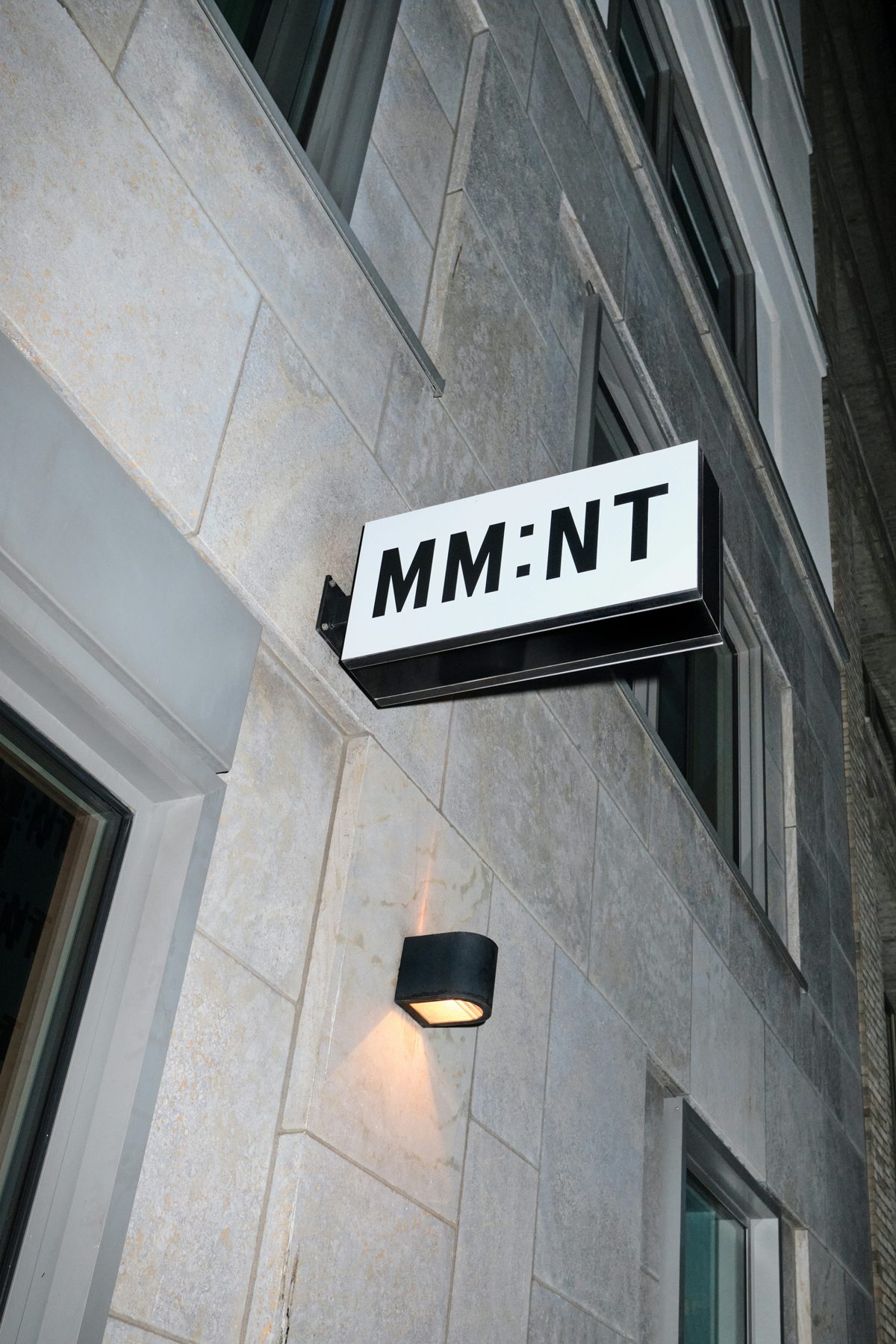
While building any hotel brand from scratch is akin to stepping into the unknown, Wagner’s latest project, MM:NT Berlin Lab, is undoubtedly her most unorthodox one yet. Located in Mitte and repurposing what was previously a wedding dress shop, the new venture is backed by Australian hotel group TFE Hotels and its apartment hotel operator Adina Hotels. Envisioned as beta hotel lab experiment, the idea is that hotel guests will initially stay for free in return for continual feedback, providing insights on what the future of travel will look like and in turn shaping a new kind of hospitality product.
Following an extensive research process that looked at growing trends such as micro-living and the shared economy, the brand strategy is rooted in what the team are internally calling “kindred travellers”. While you might expect this cohort to skew towards people in their 20s and 30s, Wagner places the emphasis on mindset over age groups. “Demographics serve a purpose if you want to put numbers against them, but people are people. Of course, its natural gravitational pull is more towards the top end of Gen Z and Millennials [but] it’s about identifying with the brand based on the experience and storytelling,” she says.

Building on the strategy work, MM:NT’s branding and design direction was led by London and Hong Kong-based studio Hato, with the visual identity, app and website design (which run entirely on green energy) all using ‘different moments in time’ as a jumping off point. “That sense of shared time was really important and we felt really captured the kindred spirit, so that became a cornerstone,” says co-founder and creative director, Ken Kirton. The MM:NT wordmark, for instance, divides the reduced name of “moment” into two parts and serves as a visual signature across both digital and physical touchpoints.
Drawing inspiration from Christian Marclay’s cult artwork The Clock and Dieter Rams’ famous designs for Braun, the time theme is woven throughout the guest experience – from room numbers designed as digital clock faces to the hotel’s exterior signage. A bespoke typeface is inspired by the numbers on both analogue and digital watches and, in another reference to Rams’ iconic 1980s products, the colour palette is primarily black with an injection of complementary muted colours.
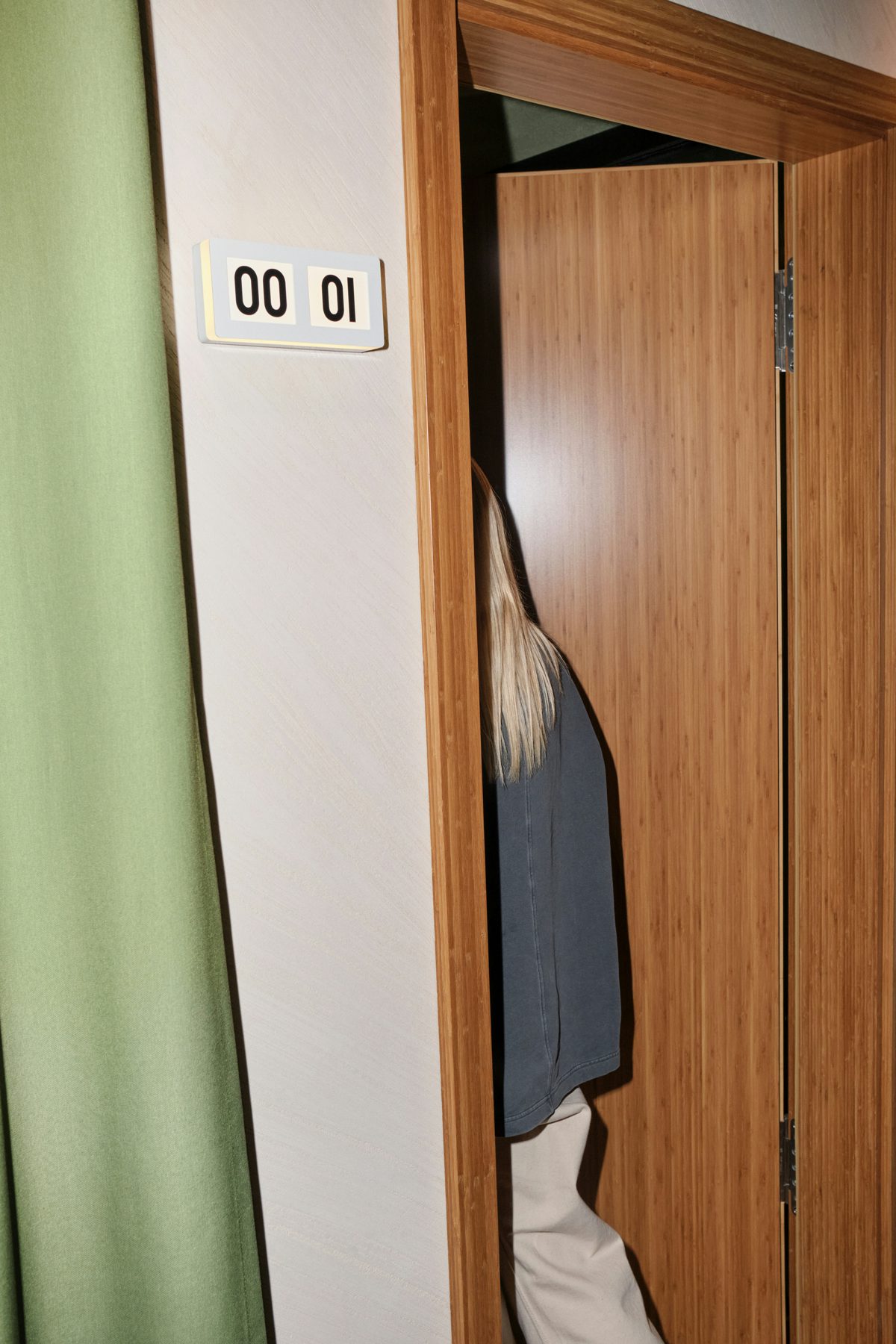
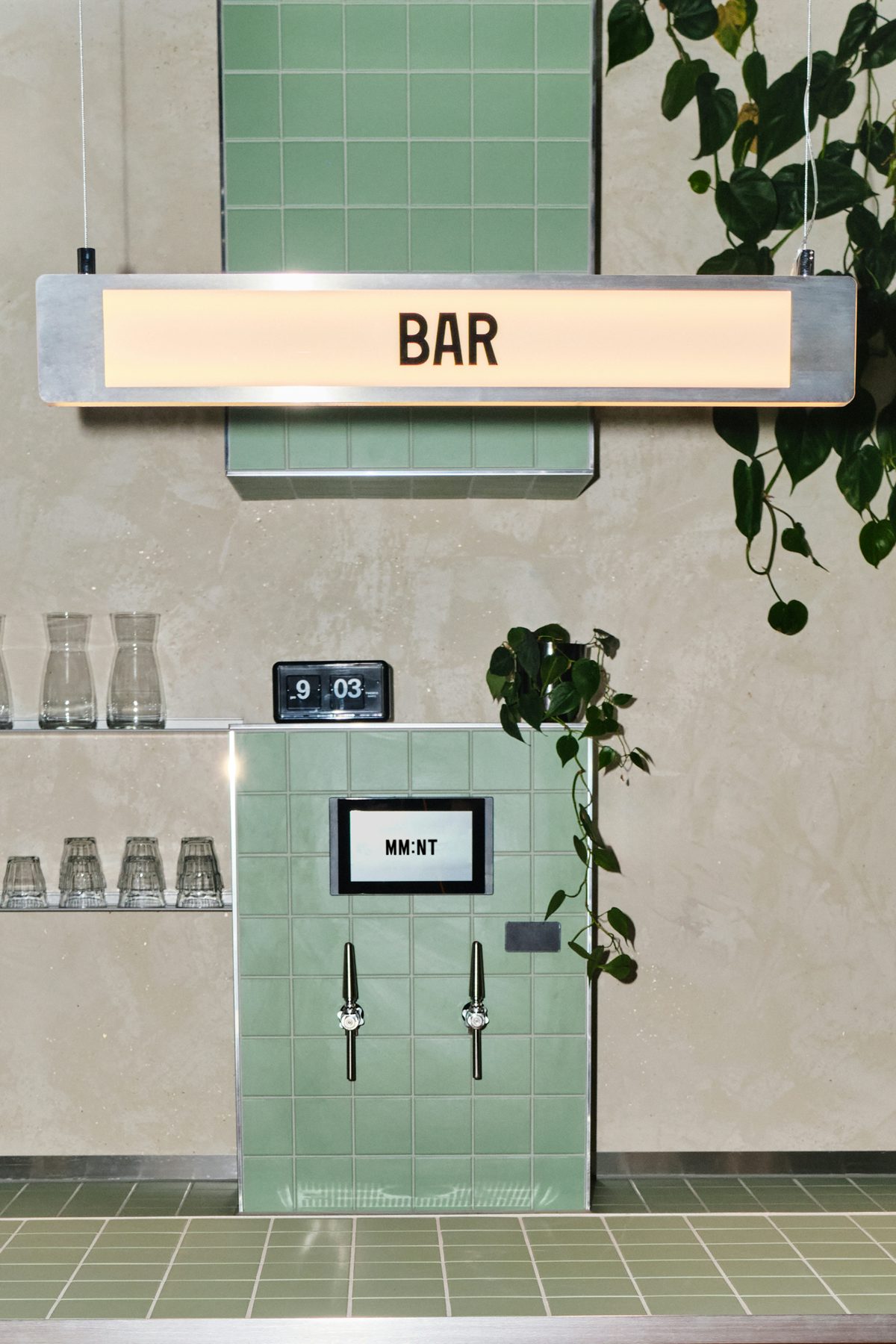
In keeping with the graphic language, the photographic direction highlights the celebratory and everyday ‘moments’ of a hotel stay. “It is these fleeting moments – that beautiful bird sitting on a tree, the metro whizzing past you, laughing over a glass of wine with friends in the evening before you head to dinner – we all love and yearn for when you’re sitting at your desk that we really wanted to capture in the brand,” says Em Kirton, partner and brand director at Hato.
The studio’s work is intended to blend seamlessly with MM:NT’s interior design, led by London and Berlin-based architects ACME and Vienna-based interior design and architecture practice BWM. Based on a brief to maximise space without sacrificing experience and tackle the less sustainable elements of the overall hotel experience, modular construction, natural and recycled materials and smart storage solutions became fundamental components of the overall design.
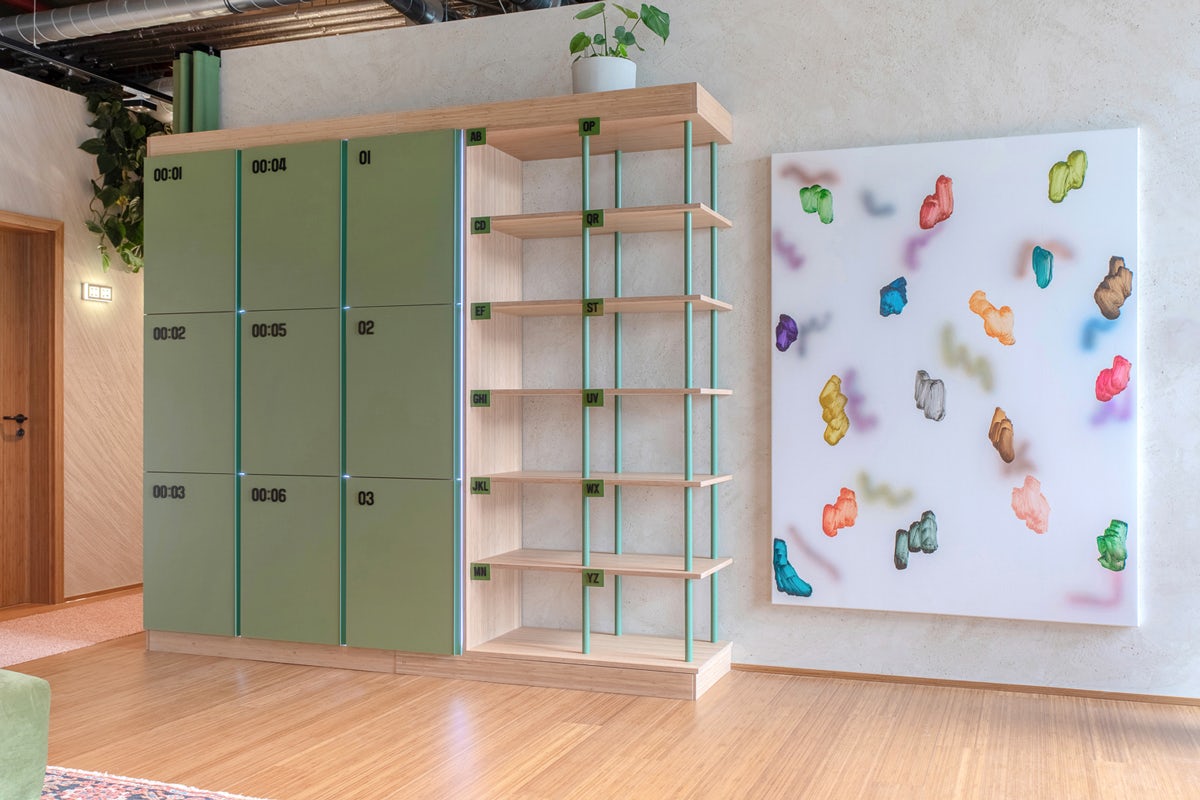
In total, there are six stylish yet minimalist room designs of varying sizes, while shared spaces include a lounge and a social space for co-working or to enjoy a drink or bite to eat. In addition, another secure communal space allows guests to have groceries, laundry and meals delivered and stored in their own lockers, hopefully fostering a DIY mindset that allows them the freedom to shape their individual stays.
After recruiting 400 guests who fitted the ‘kindred traveller’ demographic via social media, the MM:NT team has spent the last two months continually gathering feedback from them. This has ranged from answering direct and less direct questions, to carrying out ‘tasks’ such as filming themselves in their room explaining what they like and don’t like about it or having a drink in the self-pour bar and testing out the app to pay for it.
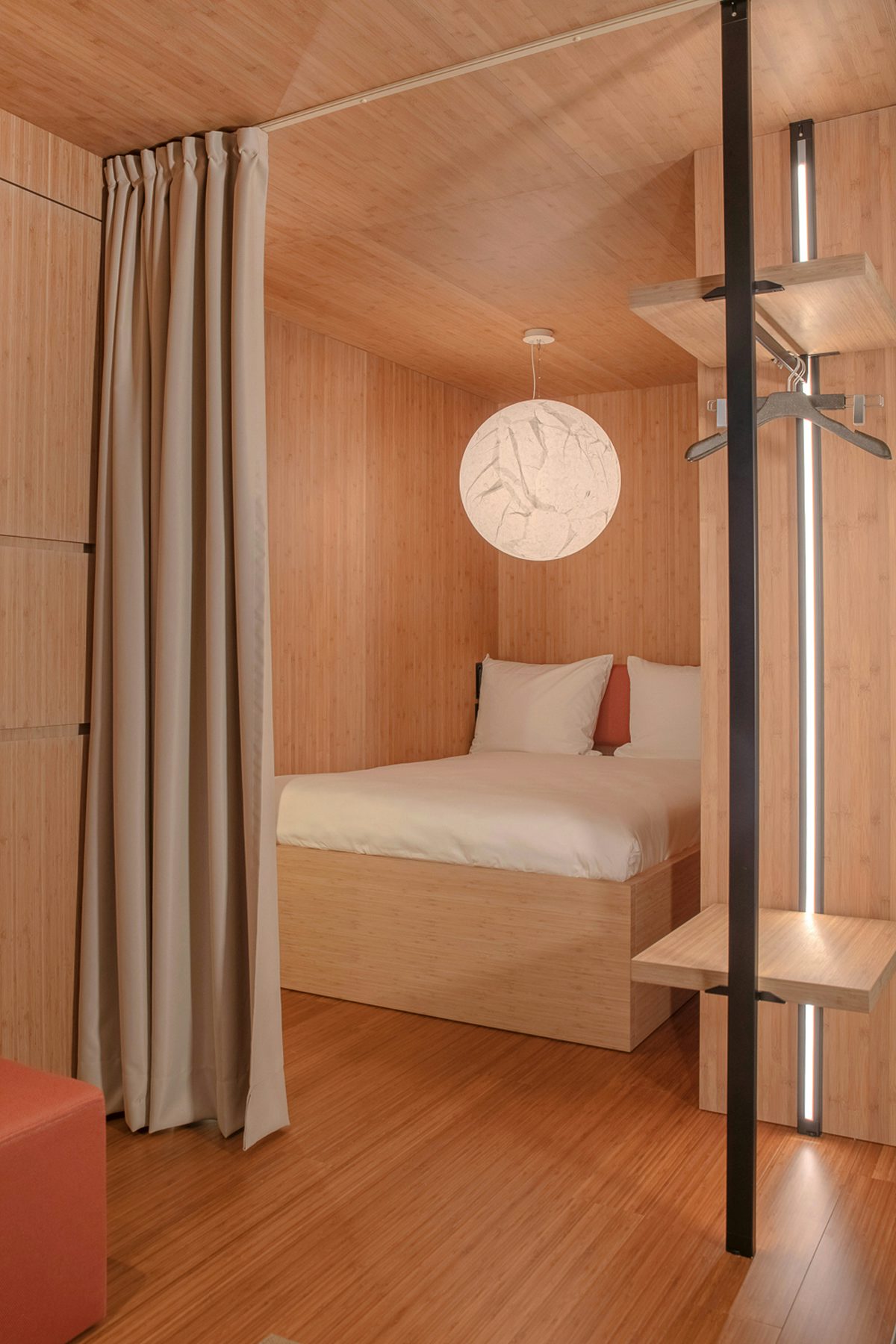

“We’ve also built in ‘mistakes’, or things that would normally be classed as the wrong thing to do in the industry,” says Wagner. “For our smallest room, rather than going, ‘let’s put the smallest bed in there and the smallest sink to make it feel more spacious’, we said, ‘let’s put the biggest bed so it feels the most luxurious’ and actually play with people’s perceptions. Because we can take risks, it’s allowed us to learn things that you would never have learned otherwise.”
While MM:NT Berlin Lab will officially open to paying guests from July 1, the plan is for it to continue operating in beta mode for the foreseeable future. “The bricks and mortar nature of hotels is static and it’s very hard to change, the idea is it should always be built physically and virtually as something that has the ability to adapt and evolve and change, because people adapt and evolve and change,” says Wagner. The insights that come out of the ongoing experiment will also inform the planned wider roll out of the MM:NT brand in cities across Europe and Australia.
Having had a glimpse into what the future of travel could look like over the course of the experiment, it’s clear to Wagner that the conscious hospitality movement is only going to gain traction in the years to come. “It’s about how hospitality can give back to communities,” she says. “It’s hotels saying, if you can prove you’ve come by train we’ll give you 20% off your stay, or when you stay with us as part of it you need to connect with the community, so help with the clean-up of the beaches or share your skills with the local community. It’s that sense of, if you’re going to go and stay somewhere you give back to the community, you don’t just take from the community.”
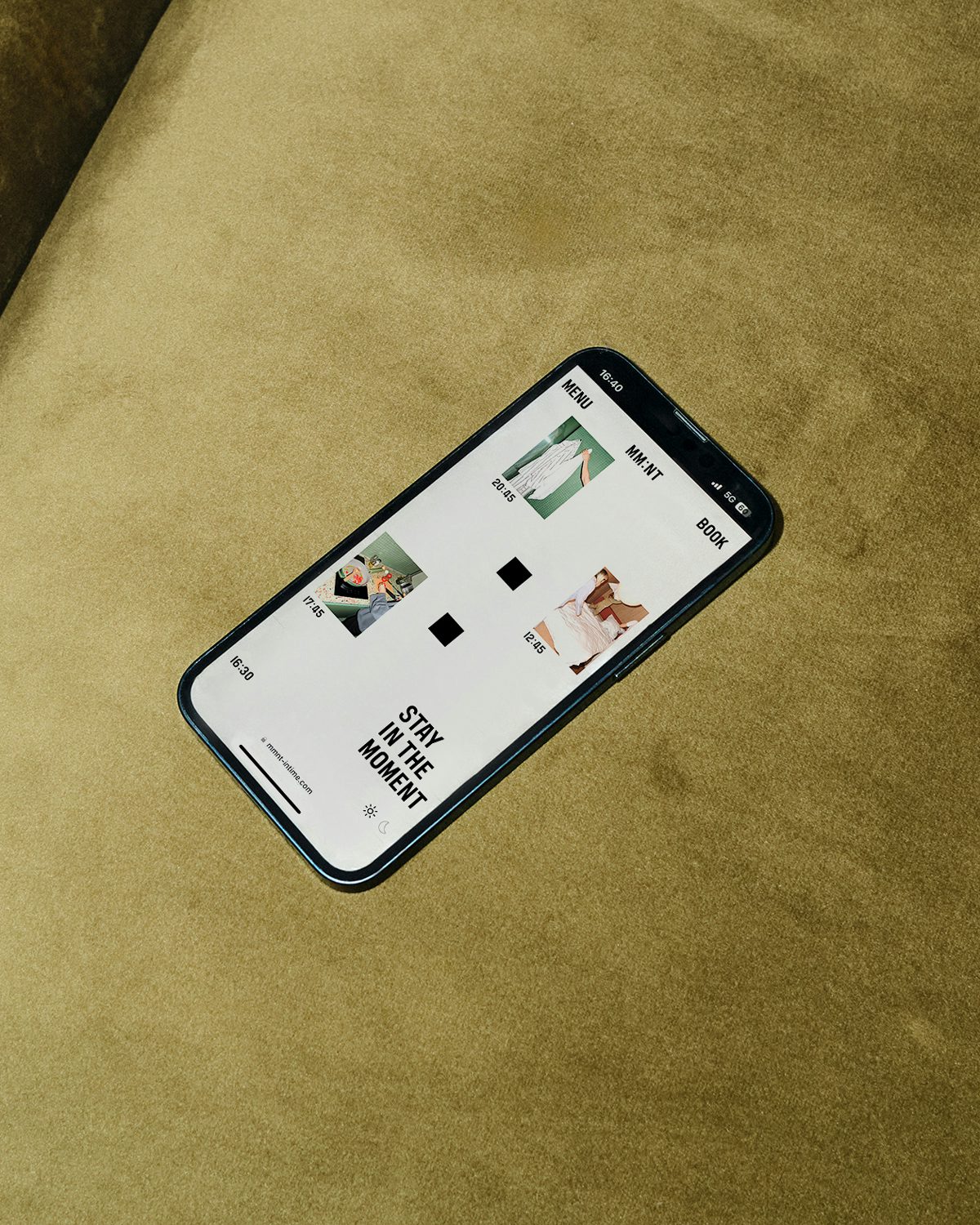
MM:NT Berlin Lab is open for bookings now for stays from July; philippawagner.co; hato.co
